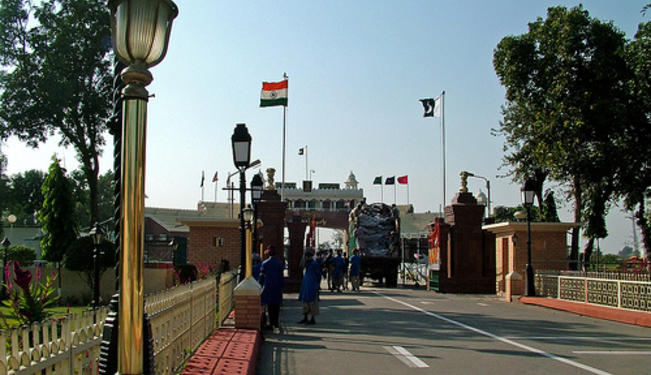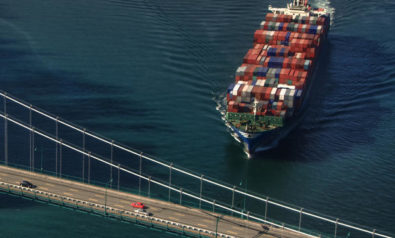Going to war with Pakistan rather than resolving issues diplomatically will hurt rather than benefit India. Those with an aggressive view on India’s relations with Pakistan emphasise that the Indian army is much larger than Pakistan’s, and technically more sound in all three wings of the armed forces. Their views can be summed up as follows: “Indians know the exact locations of terrorist camps in Pakistan in southern Punjab and Pak-occupied Kashmir. India should not wait for another terror-attack to occur. Even if Indian air-strikes on those terrorist camps result in a war, we have an upper edge. Pakistan has neither money nor resources to sustain a war with us for even a month, as it hardly has any international support. There is no way it can dare to use atomic weapons as the result would be more catastrophic for itself. We only need a government with some political will, and Pakistan and terrorism will be things of the past." Such speeches make a great impact on the masses and can electrify public emotions against Pakistan. They may help to win elections by making a candidate popular and attracting a large number of followers. Nevertheless, such speeches contain flawed arguments aimed at disguising issues, and are invitations to disaster. Comprehensive security It is important to understand how “security” is defined. I would like to define “security” as a comprehensive term which consists of physical as well as economic, social, and psychological security. The state’s task is not simply to look after its people’s physical security but also to make sure they have access to good education, health care, employment opportunities, and an improving quality of life. Choosing the “aggressive-view” presented above is unlikely to help improve the “comprehensive security” of Indians. It is more likely that the people will have to sacrifice their current quality of life, as a war would hurt almost every socio-economic indicator. Indians would be required to then forget about 10% GDP growth for at least a few years. And the obvious destruction that a war brings, would set India’s growth trajectory back. India is struggling to provide basic facilities to its people even now, and the responsibility of another 17crore people would be a burden we cannot afford. We can see America struggling to manage Afghanistan. The fall of Islamabad does not mean the end of trouble. The number of non-state warlords in Pakistan will multiply and terror strikes will increase in India. The present situation in Pakistan has seen the number of suicide bombings rise exponentially over the past five years, as some terror groups attribute the fall of Kabul to Pakistan’s support to the US. Similar repurcussions can be expected in India if Pakistan is defeated in an Indo-Pak war. Moreover, wars cannot be completely won or lost, and usually result in a compromise (e.g. USA-Iraq and USA-Afghanistan). In addition, extremism is a psychological phenomenon and guns will only provoke it. India’s fight should be against anger. Indian aggression will only fuel extremism in Pakistan. If 20% of Pakistan’s current population harbors extremist views, Indian aggression will make them a mainstream majority. If Indians kill one Hafeez Syed, another will adapt to his psyche and continue preaching terrorism. While I am not suggesting that Hafeez Syed should not be prosecuted, individual prosecutions will hardly solve the larger issue of terrorism for India. India should instead target the anti-India psyche prevalent in Pakistan. Lastly, by being aggressive, Indians shall undermine the more liberal and educated middle-class of Pakistan. It was the Pakistani government that was denying Kasab’s connection to Pakistan but the mainstream Pakistani television channel Geo News uncovered Kasab’s family in Faridkot in Pakistan. There are examples illustrating that the Paksitani middle class is introspecting about Pakistan’s social-fabric and is trying to overcome anti-India sentiments. Any observer of Pakistan would agree that these relatively moderate people are gradually losing voice and that an increasing number of moderate leaders are being killed. This is not in India’s interest, because the moderates are fighting extremism in Pakistan. What should India do ? In the long term, there are smarter alternatives to military action. Economics is one of the most important factors in international relations: If India expands trade relations with Pakistan, Pakistanis will realize that their interest lies in India’s growth and not in its down fall. For e.g., if Pakistani farmers are benefiting from mango exports to India, they would want India to grow so they can have a bigger market and command better prices which in turn will fuel their own growth. The more there is economic-interdependence, the more obsolete “anti-India sentiments” will become. It is high time for India to initiate talks on free-trade agreements with its neighbours, and especially with Pakistan. Cooperation between India and Pakistan can redefine economic growth not just in these two countries, but in greater South Asia. Secondly, India and Pakistan need greater people-to-people contact. Both sides should promote dialogue among their students, faculty members, artists, and intellectuals on a large scale. Visitor visas must be made more easily accessible on both sides. India should help the moderates in Pakistan to be heard and should use its external intelligence agency (the Research and Analysis Wing) constructively. Silencing extremists in Pakistan may be a good strategy but encouraging moderate voices is more promising. Covertly, India should also explore opportunities to strengthen pluralist, moderate, and progressive democratic parties in Pakistan. I would like to term this a “positive” use of external intelligence. This is vital considering the present scenario in Pakistan. It will be fruitful for India to have a stable democratic Pakistan which allows for pluralistic values. Finally, the people of South Asia are over-emotional in general. Indians and Pakistanis either fight or love each other. They talk about either war or reunification. Reunification is a very quixotic idea. International relations are based on a country’s interests and not on its emotions. Warm relationships, good people-to-people contact, and deep-rooted trade relations are ultimately what will go a long way in improving relations between the two countries. Investment in “comprehensive security” is more desireable than investment in arms and ammunition.
The views expressed in this article are the author's own and do not necessarily reflect Fair Observer’s editorial policy.
Support Fair Observer
We rely on your support for our independence, diversity and quality.
For more than 10 years, Fair Observer has been free, fair and independent. No billionaire owns us, no advertisers control us. We are a reader-supported nonprofit. Unlike many other publications, we keep our content free for readers regardless of where they live or whether they can afford to pay. We have no paywalls and no ads.
In the post-truth era of fake news, echo chambers and filter bubbles, we publish a plurality of perspectives from around the world. Anyone can publish with us, but everyone goes through a rigorous editorial process. So, you get fact-checked, well-reasoned content instead of noise.
We publish 2,500+ voices from 90+ countries. We also conduct education and training programs
on subjects ranging from digital media and journalism to writing and critical thinking. This
doesn’t come cheap. Servers, editors, trainers and web developers cost
money.
Please consider supporting us on a regular basis as a recurring donor or a
sustaining member.
Will you support FO’s journalism?
We rely on your support for our independence, diversity and quality.







Comment